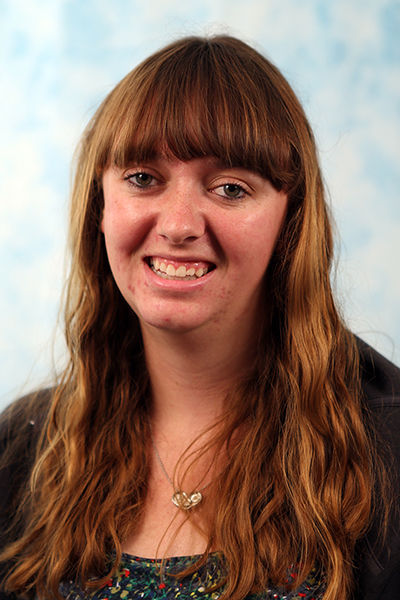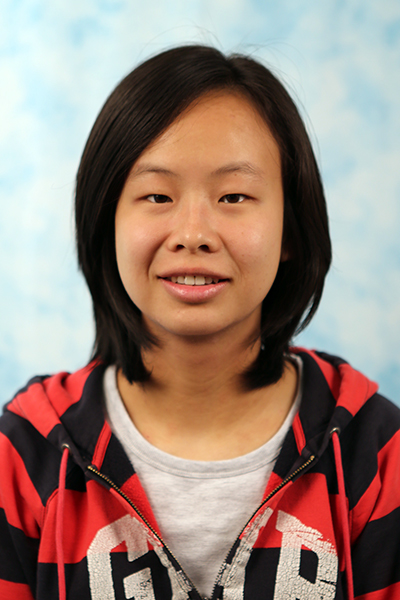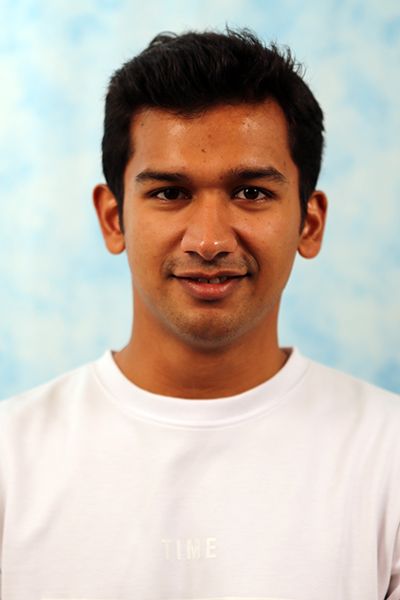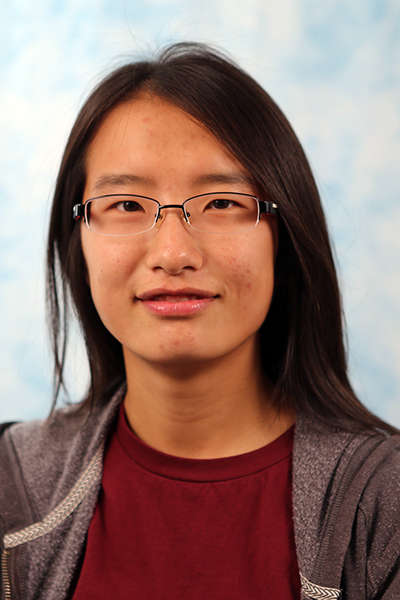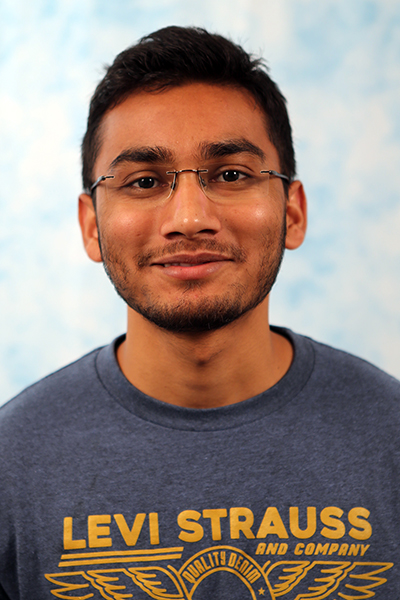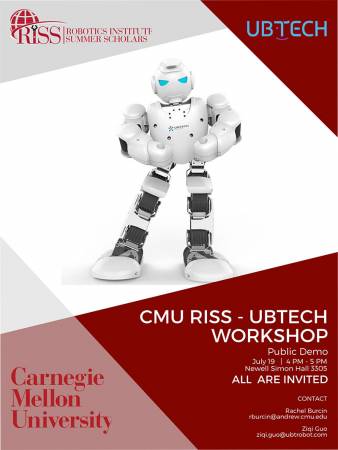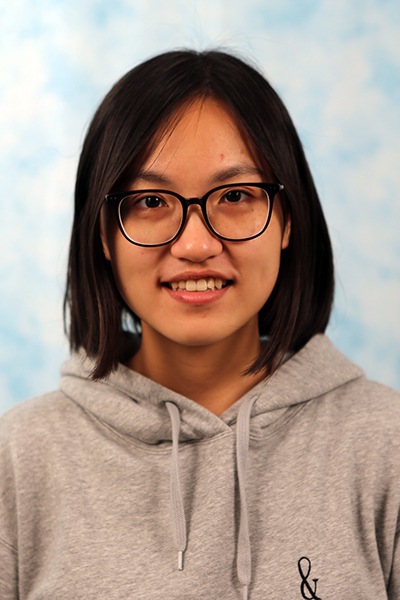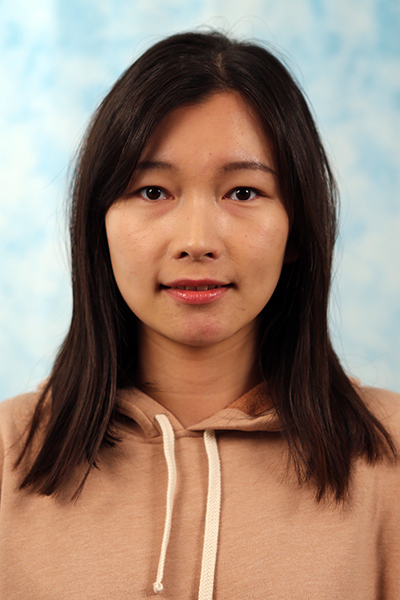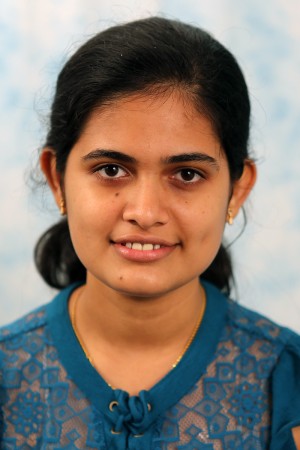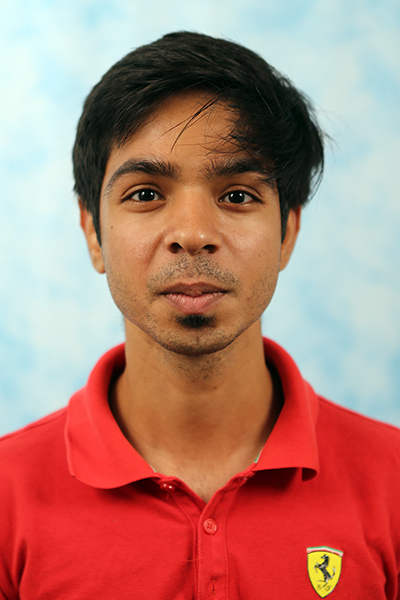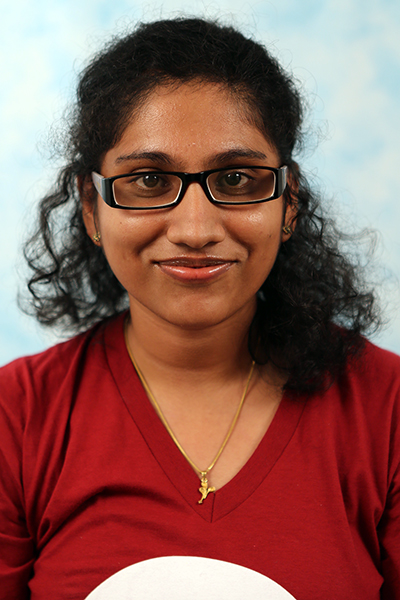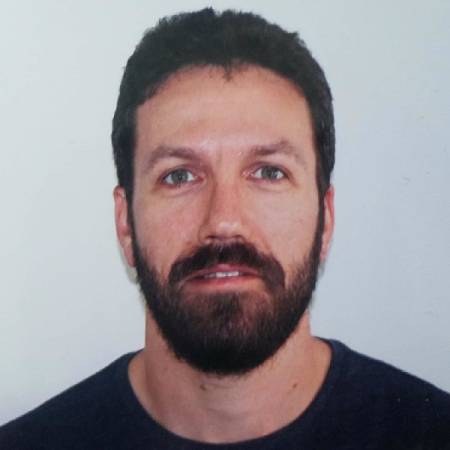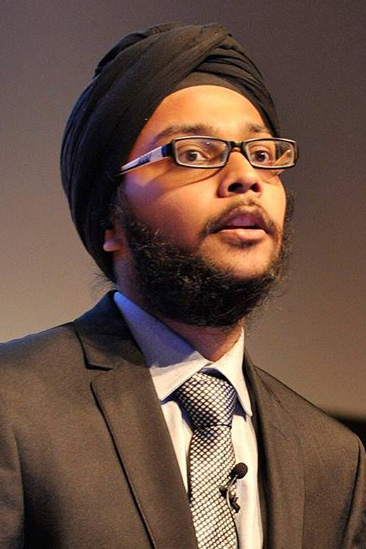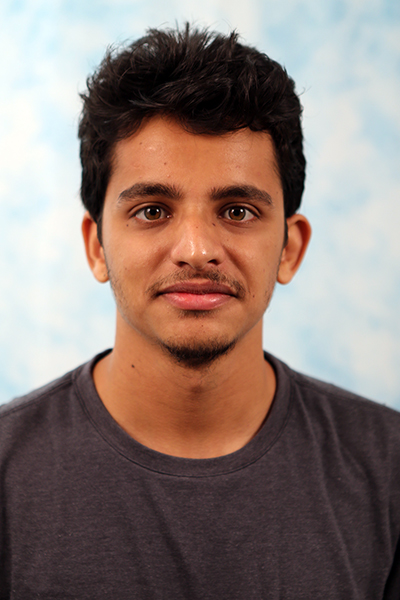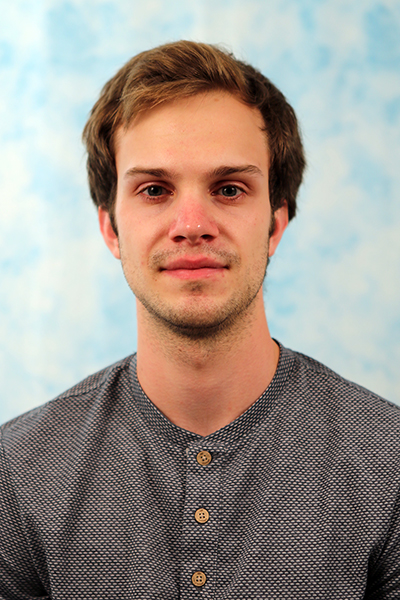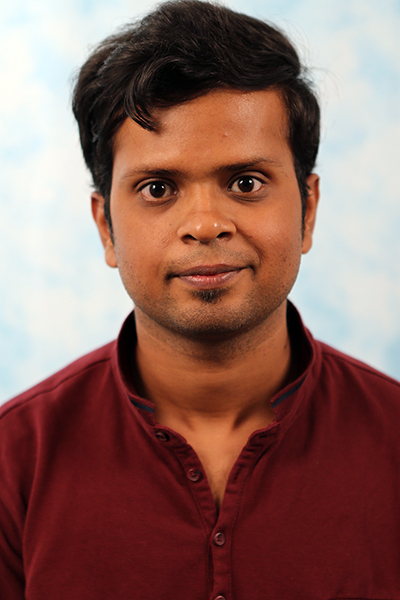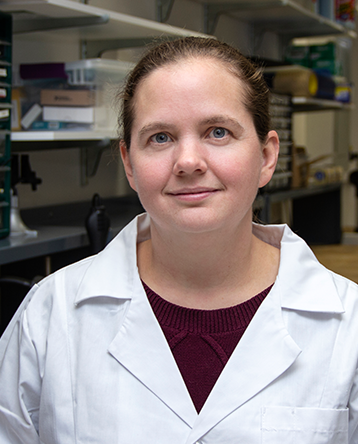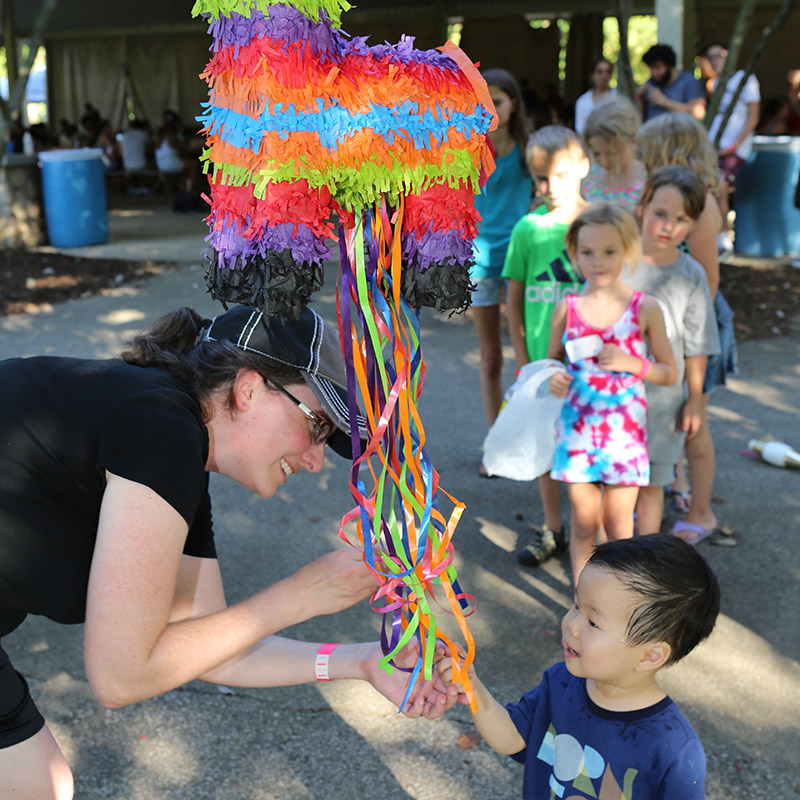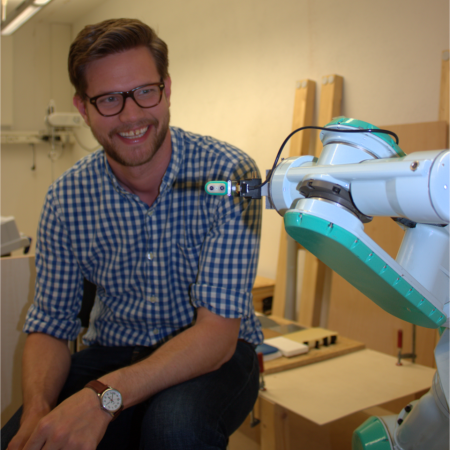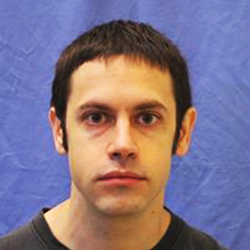Carnegie Mellon University
Manipulation Planning using Pushing or Pulling Primitives
Abstract: Humans manipulate objects using a wide range of actions, such as grasping, pushing, pulling, in-hand rolling, and more. This observation has lead to much research about modeling and learning individual manipulation actions. To better understand the impact of action models on planning and executing manipulation actions, we applied manipulation planning with pushing and pulling [...]
Event Cameras: Image Reconstruction, Convolutions and Color
Abstract: Event cameras are novel, bio-inspired visual sensors, whose pixels output asynchronous and independent timestamped spikes at local intensity changes, called ‘events’. Event cameras offer advantages over conventional frame-based cameras in terms of latency, high dynamic range (HDR) and temporal resolution. Event cameras do not output conventional image frames, thus, image reconstruction from events enables [...]
Yeeho Song – MSR Thesis Talk
Title: Inverse Reinforcement Learning for Autonomous Ground Navigation Using Aerial and Satellite Observation Data Abstract: Inverse Reinforcement Learning(IRL) is a supervised learning paradigm where a learner observes expert demonstrations to learn the hidden cost function to mimic the expert's behavior. Eliminating the need for elaborate feature engineering, deep IRL approaches have been gaining interests [...]
From Farm to Takeoff: Ground and Aerial Robots for Biological Systems Analysis
Abstract: Biological and agricultural environments are dynamic, unstructured, and uncertain, posing challenges for environmental data collection at the necessary spatial and temporal scales to enable meaningful systems analysis. Small unmanned systems, however, can overcome some of these challenges by enabling autonomous or human-assisted image-based and in situ environmental data collection. This talk will present a suite of [...]
Carnegie Mellon University
Satyaki Chakraborty – MSR Thesis Talk
Title: Detecting objects in videos under occlusion Abstract: While object detection in videos has received a lot of attention in the past few years, most existing methods in this domain do not target detecting objects when they are occluded. However, being able to detect or track an object of interest through occlusion has been [...]
Carnegie Mellon University
MSR Thesis Talk – Junjiao Tian
Title: Detailed Image Captioning with Hierarchical Attention Abstract: Automatic image description is the task of generating a natural sentence which reflects the visual content of an image. A lot of deep learning architectures have been explored in the past few years. While researchers have made great improvement on generating syntactically correct sentences by learning from [...]
Carnegie Mellon University
Analysis of Spatio-Temporally Varying Features in Optical Coherence Tomographic (OCT) and Ultrasound (US) Image Sequences
Abstract: Optical Coherence Tomography (OCT) and Ultrasound (US) are non-ionizing and non-invasive imaging modalities that are clinically used to visualize anatomical structures in the body. OCT has been widely adopted in clinical ophthalmology due to its micron-scale resolution to visualize in-vivo structures of the eye. Ultra-High Frequency Ultrasound (UHFUS) captures images of tissue at a [...]
Carnegie Mellon University
MSR Thesis Talk – Karen Orton
Title: Inching for Planetary Rovers Abstract: . Inching, also called push-rolling, is method of moving for vehicles that can change the position of their wheels relative to their body. Like an inchworm, it is possible to hold some wheels stationary while advancing the others and the body. In this research a test apparatus capable [...]
RI Faculty Social
All Robotics Institute faculty are invited to attend this informal team-building business/social event. Beverages and snacks will be provided.
Sha (Yisha) Yi – MSR Thesis Talk
Title: Improving Scalability in Multi-Robot Systems with Abstraction and Specialization Abstract: Planning and controlling multi-robot systems is challenging due to high dimensionality. When the number of robots increases in the system, the complexity of computation grows exponentially. In this thesis, we examine the scalability problem in planning and control of the multi-robot system. We propose [...]
Carnegie Mellon University
MSR Thesis Talk – Andy (Chieh-En) Tsai
Title: A Generative Approach for Socially Compliant Navigation Abstract: Robots navigating in human crowds need to optimize their paths not only for the efficiency of their tasks performance but also for the compliance to social norms. One of the key challenges in this context is due to the lack of suitable metrics for evaluating and [...]
Carnegie Mellon University
Shubham Agrawal – MSR Thesis Talk
Title: 3D Face Geometry Capture Using Monocular Video Abstract: Accurate reconstruction of facial geometry has been one of the oldest tasks in computer vision. Despite being a long-studied problem, many modern methods fail to reconstruct realistic looking faces or rely on highly constrained environments for capture. High fidelity face reconstructions have so far been [...]
Carnegie Mellon University
Tejas Khot – MSR Thesis Talk
Title: Unsupervised Learning for 3D Reconstruction and Blocks World Representation Abstract: Recovering the dense 3D structure of a scene from its images has been a long-standing goal in computer vision. Recent years have seen attempts of encoding richer priors into the geometry-based pipelines with the introduction of learning based methods. We argue that the form of 3D [...]
Tracking Beyond Detection
Abstract: The majority of existing vision-based methods perform multi-object tracking in the image domain. Yet, in mobile robotics and autonomous driving scenarios, pixel-precise object localization and trajectory estimation in 3D space are of fundamental importance. Furthermore, the leading paradigms for vision-based multi-object tracking and trajectory prediction heavily rely on object detectors and effectively limit tracking [...]
Carnegie Mellon University
Yubo Zhang – MSR Thesis Talk
Title: A structured model for action detection Abstract: A dominant paradigm for learning-based approaches in computer vision is training generic models, such as ResNet for image recognition, or I3D for video understanding, on large datasets and allowing them to discover the optimal representation for the problem at hand. While this is an obviously attractive approach, [...]
Carnegie Mellon University
Nilesh Kulkarni – MSR Thesis Talk
Title: Canonical Surface Mapping via Geometric Cycle Consistency Abstract: We explore the task of Canonical Surface Mapping (CSM). Specifically, given an image, we learn to map pixels on the object to their corresponding locations on an abstract 3D model of the category. But how do we learn such a mapping? A supervised approach would [...]
Robotics Institute Faculty Retreat
More information to come.
Yufei (Judy) Ye – MSR Thesis Talk
Title: Leveraging Structure for Generalization and Prediction in Visual System. Abstract: Our surrounding world is highly structured. Humans have a great capacity of understanding and leveraging those structures to generalize to novel scenarios and to predict the future. The thesis studies how computer vision systems benefit from the similar process -- leveraging inherent structures in [...]
Carnegie Mellon University
Dhiraj Gandhi – MSR Thesis Talk
Title: Self-Supervised Robot Learning Abstract: Supervised learning has been used in robotics to solve various tasks like navigation, fine manipulation, etc. While it has shown a promising result, in most cases the supervision comes from the human agent. However, relying on human is a huge bottleneck to scale up these approaches. In this thesis, [...]
Carnegie Mellon University
MSR Thesis Talk – Chia Dai
Title: Few-Shot Learning for Semantic Segmentation Abstract: Most learning architectures for segmentation task require a significant amount of data and annotations, especially in the task of segmentation, where each pixel is assigned to a class. Few-shot segmentation aims to replace large amount of training data with only a few densely annotated samples. In this talk, [...]
Carnegie Mellon University
Subhodeep Mitra – MSR Thesis Talk
Title: A fast algorithm for consecutive ones with applications in item labeling Abstract: We develop and analyze a general problem in a crowd-sourced setting: users pick a label from a set of candidates for a set of items; the problem is to determine the most likely label for each item, as well as a ranking [...]
Carnegie Mellon University
Spatiotemporal Understanding of People Using Scenes, Objects, and Poses
Abstract: Humans are arguably one of the most important entities that AI systems would need to understand to be useful and ubiquitous. From autonomous cars observing pedestrians to assistive robots helping the elderly, a large part of this understanding is focused on recognizing human actions, and potentially, their intentions. Humans themselves are quite good at [...]
Carnegie Mellon University
Aashi Manglik – MSR Thesis Talk
Title: Real-Time Collision Forecasting from Monocular Video Abstract: We explore the possibility of using a single monocular camera to forecast the time to collision between a suitcase-shaped robot being pushed by its user and other nearby pedestrians. We develop a purely image-based deep learning approach that directly estimates the time to collision without the need [...]
Carnegie Mellon University
Deep Non-Rigid Structure from Motion
Abstract: Non-Rigid Structure from Motion (NRSfM) refers to the problem of reconstructing cameras and the 3D point cloud of a non-rigid object from a sequence of images with 2D correspondences. Current NRSfM algorithms are mainly limited within two perspectives: (i) the number of images, and (ii) the type of shape variability they can handle. These [...]
Carnegie Mellon University
Kevin Christensen – MSR Thesis Talk
*LOCATION CHANGE TO NEWELL SIMON HALL ROOM 1305* Title: Computer Vision for Live Map Updates Abstract: Real-time traffic monitoring has had widespread success via crowd-sourced GPS data. While drivers benefit from this low-level, low-latency map information, any high-level traffic data such as road closures and accidents currently have very high latency since such systems rely solely [...]
Carnegie Mellon University
MSR Thesis Talk – Weizhao Shao
Title: Stereo Visual-Inertial-LiDAR Simultaneous Localization and Mapping Abstract: Simultaneous Localization and Mapping (SLAM) is a fundamental task to mobile and aerial robotics. The goal of SLAM is to utilize onboard sensors for estimating the robot’s trajectory while reconstructing the surrounding environment (map) in real-time. The algorithm should also be able to perform loop closure, such [...]
Carnegie Mellon University
Samuel Clarke – MSR Thesis Talk
Title: Robot Learning for Manipulation of Granular Materials Abstract: Granular materials are ubiquitous in household and industrial manipulation tasks, but their dynamics are difficult to model analytically or through simulation. During manipulation, they provide rich multimodal sensory feedback. We present a robotic system we constructed for investigating manipulation of granular materials. We present [...]
Gengshan Yang – MSR Thesis Talk
Title: Volumetric Correspondence Networks for Stereo Matching and Optical Flow Abstract: Many classic tasks in vision, such as the estimation of optical flow or stereo disparities, can be cast as dense correspondence matching. Well-known techniques for doing so make use of a cost volume, which is typically a 3D/4D tensor of match costs between all [...]
Carnegie Mellon University
Jack Yang – MSR Thesis Talk
Title: Surfel-based RGB-D Reconstruction and SLAM with Global and Local Consistency Abstract: Achieving high surface reconstruction accuracy in dense mapping has been a desirable target for both robotics and vision communities. In the robotics literature, simultaneous localization and mapping (SLAM) systems use depth-enabled cameras to reconstruct a dense map of the environment. They leverage [...]
Carnegie Mellon University
Kevin Pluckter – MSR Thesis Talk
Title: Precision UAV Landing in Unstructured Environments Abstract: The autonomous landing of a drone is an important part of autonomous flight. One way to have a high certainty of safety in landing is to return the drone to the same location it took-off from. Current implementations of the return-to-home functionality fall short when relying solely [...]
Carnegie Mellon University
Zimo Li – MSR Thesis Talk
Title: Joint Surface Reconstruction from Monocular Vision and LiDAR Abstract: In recent years, dense reconstruction gains popularity because of its broad applications in inspection, mapping, and planning. Cameras or LiDARs are generally deployed for 3D dense reconstruction. However, current reconstruction pipelines based on cameras or LiDARs have significant limitations in achieving an accurate and [...]
DJI Visit & Demo
Really interested in aerial robotics? You are invited to meet members of the DJI technical team and human resources. This Friday, July 12th, Sam Wang (CMU MRSD '16) Robotics Software Engineer, DJI, will be giving a public demo and short talk. This visit is part of the 3rd annual DJI – CMU RISS aerial robotics [...]
Carnegie Mellon University
Bhavan Jasani – MSR Thesis Talk
Title: Automatic detection of human affective behavior in dyadic conversations Abstract: Emotion is communicated through face, voice, and body motion in interpersonal contexts. Yet, most approaches to automatic detection emphasize a single modality (especially face or voice), ignore social context, and focus on well-defined signs of emotion (e.g., smile). This thesis addresses multimodal, interpersonal emotion [...]
Carnegie Mellon University
Aaron Roth – MSR Thesis Talk
Title: Structured Representations for Behaviors of Autonomous Robots Abstract: Autonomous robot behavior can be captured in many ways: as code, as modules of code, in an unstructured form such as a neural net, or in one of several more structured formats such as a graph, table, or tree. This talk explores structured representations that [...]
Carnegie Mellon University
Travers Rhodes – MSR Thesis Talk
Title: Vision and Improved Learned-Trajectory Replay for Assistive-Feeding and Food-Plating Robots Abstract: Food manipulation offers an interesting frontier for robotics research because of the direct application of this research to real-world problems and the challenges involved in robust manipulation of deformable food items. In this talk, we focus on the challenges associated with robots manipulating [...]
Kevin Zhang – MSR Thesis Talk
Title: Leveraging Multimodal Sensory Data for Robust Cutting Abstract: Cutting food is a challenging task due to the variety of material properties across food items. In addition, different events occur during the slicing process that need to be monitored and detected for robust execution, such as when a knife has completely cut through a [...]
Sensor Planning for Large Numbers of Robots
Abstract: Teams of aerial sensing robots can provide valuable situational awareness to first responders during disasters and emergencies by locating victims, mapping environments, identifying hazards, and locating gas sources. While individual sensing tasks may feature a variety of goals, many tasks will be time-sensitive such as after a widespread disaster or due to imminent danger [...]
Carnegie Mellon University
MSR Thesis Talk – Edward Ahn
Title: Toward Safe Reinforcement Learning in the Real World Abstract: Control for mobile robots in slippery, rough terrain at high speeds is difficult. One approach to designing controllers for complex, non-uniform dynamics in unstructured environments is to use model-free learning-based methods. However, these methods often lack the necessary notion of safety which is needed [...]
CMU RISS – UBTECH Workshop
As part of the RISS-UBTECH Workshop, UBTECH will be doing a Public Demo & Company Overview this Friday. For more information contact: Rachel Burcin or Ziqi Guo
MSR Thesis Talk – Xianyi Cheng
Title: Data-Efficient Stage Classification and Failure Detection for Robotic Screwdriving Abstract: Screwdriving is one of the most common assembly methods, yet its full automation is still challenging, especially for small screws. A critical reason is that existing techniques perform poorly in process monitoring and failure prediction. In addition, most solutions are essentially data-driven, thereby [...]
Wenxuan Zhou – MSR Thesis Talk
Title: Environment Generalization in Deep Reinforcement Learning Abstract: A key challenge in deep reinforcement learning (RL) is environment generalization: a policy trained to solve a task in one environment often fails to solve the same task in a slightly different test environment. In this work, we propose the ``Environment-Probing'' Interaction (EPI) policy, which allows the agent [...]
Abhijat Biswas – MSR Thesis Talk
Title: Human Torso Pose Forecasting for the Real World Abstract: Anticipatory human intent modeling is important for robots operating alongside humans in dynamic or crowded environments. Humans often telegraph intent through posture cues, such as torso or head cues. In this paper, we describe a computationally lightweight approach to human torso pose recovery and forecasting [...]
Carnegie Mellon University
Anjana Kakecochi Nellithimaru – MSR Thesis Talk
Title: Object-level visual SLAM for plant modeling Abstract: A 3D model that can capture the finer details of the plant structure as well as the overall field statistics, plays an important role in automating agriculture. However, modeling and mapping an agricultural field is challenging due to dynamics, illumination conditions and limited texture inherent in an outdoor environment. We propose a pipeline that combines the recent [...]
Carnegie Mellon University
MSR Thesis Talk – Aman Khurana
Title: Behavior planning at roundabouts About the talk: Roundabouts or traffic circles represent a significant portion of unsignalized intersections commonly found in urban and rural roads and pose a specific challenge for autonomous or self-driving cars. In this work, we present model-free techniques that allow a self-driving car to navigate a roundabout safely. We [...]
Arpita Routray – MSR Thesis Talk
Title: Towards retinal membrane peeling with a handheld robotic instrument Abstract: Vitreoretinal surgery procedures demand high precision and have to be performed with limited visualization and access. One such procedure is membrane peeling, which involves peeling of the 5-10 µm thick internal limiting membrane around macular holes. Using virtual fixtures in conjunction with robotic [...]
Carnegie Mellon University
MSR Thesis Talk – Sumit Kumar
Title: Spatiotemporal Modeling using Recurrent Neural Processes Abstract: Spatiotemporal processes, such as temperature in an area, motion of a vehicle, etc., depend on the spatial features of the underlying phenomena as well as time. Developing models that can estimate both mean and uncertainty associated with the prediction is important for building robust systems capable of [...]
Sudharshan Suresh – MSR Thesis Talk
Title: Localization and Active Exploration in Indoor Underwater Environments Abstract: Autonomous underwater vehicles have the potential to inspect and map indoor underwater environments, such as spent nuclear fuel pools and ship ballast tanks. Towards this, the thesis makes contributions in the domains of visual localization and active SLAM for underwater environments. In the first work, [...]
Carnegie Mellon University
Cong Li – MSR Thesis Talk
Title: Multi-Sensor Fusion for Robust Simultaneous Localization and Mapping Abstract: Simultaneous Localization and Mapping (SLAM) consists of the estimation of the state of the robot, and the reconstruction of the surrounding environment simultaneously. Over the last few decades, numerous state-of-the-art SLAM algorithms are proposed and frequently utilized in the robotics community. However, a SLAM algorithm [...]
Carnegie Mellon University
MSR Thesis Talk – Naman Gupta
Title: State Estimation for Legged Robots using Proprioceptive Sensors Abstract: Mobile robots need good estimates of their state to perform closed-loop control in structured and unstructured environments. A number of existing algorithms rely on data fusion from multiple sensors to compute these estimates. This work focuses on state estimation using sensors which only measure [...]
Exploiting Deviations from Ideal Visual Recurrence
Abstract: Visual repetitions are abundant in our surrounding physical world: small image patches tend to reoccur within a natural image, and across different rescaled versions thereof. Similarly, semantic repetitions appear naturally inside an object class within image datasets, as a result of different views and scales of the same object. We studied deviations from these [...]
Carnegie Mellon University
MSR Thesis Talk – Harjatin Baweja
Title: Leveraging Computer Vision and Reinforcement Learning for contact and non-contact based plant phenotyping. Abstract: Effective plant breeding requires scientists to find correspondences between genetic markers and desirable physical traits (phenotypes) of the genotype. Robotics can aid the acceleration of breeding pipeline by facilitating high throughput plant phenotyping. In this thesis we propose [...]
Carnegie Mellon University
MSR Thesis Talk – Suhit Kodgule
Title: Active Sampling for Planetary Rover Exploration Abstract: Planetary Robotics research has expanded beyond simply developing robust navigation strategies for rovers to providing them with the capability of performing intelligent actions so as to develop a better interpretation and understanding of the environment. This will become essential in the future, when rovers explore regions far [...]
Attending to Pixels, Embedding Pixels, Predicting Pixels
Abstract: Nowadays splashy applications heavily depend on meticulously annotated datasets, data-driven and learning-based methods, among which pixel labeling plays an important role yet often lacks interpretability. In this talk, I will discuss how we deal with pixels with better interpretability. Firstly, I'll introduce the pixel embedding framework that allows for clustering pixels into discrete groups [...]
Carnegie Mellon University
Matthew Collins – MSR Thesis Talk
Title: Efficient Planning for High-Speed MAV Flight in Unknown Environments Using Sparse Topological Graphs Abstract: Safe high-speed autonomous navigation for MAVs in unknown environments requires fast planning to enable the robot to adapt and react quickly to incoming information about obstacles within the world. Furthermore, when operating in environments not known a priori, the robot [...]
Carnegie Mellon University
MSR Thesis Talk – Siva Chaitanya Mynepalli
Title: Recognizing Tiny Faces Abstract: Objects are naturally captured over a continuous range of distances, causing dramatic changes in appearance, especially at low resolutions. Recognizing such small objects at range is an open challenge in object recognition. In this paper, we explore solutions to this problem by tackling the fine-grained task of face recognition. State-of-the-art embeddings [...]
Carnegie Mellon University
Data Centric Robot Learning
Abstract: While robotics has made tremendous progress over the last few decades, most success stories are still limited to carefully engineered and precisely modeled environments. Getting these robots to work in the complex and diverse world that we live in has proven to be a difficult challenge. Interestingly, one of the most significant successes in [...]
Automatically Supervised Learning: Two more steps on a long journey
Abstract: I will talk about two recent pieces of work that attempt to move towards learning with less reliance on labeled data. In the first, part, I will talk about how the surrogate task of predicting the motion of objects can induce complex representations in neural networks without any labeled data. In the second part of [...]
Carnegie Mellon University
Exploiting Point Motion, Shape Deformation, and Semantic Priors for Dynamic 3D Reconstruction in the Wild
Abstract: With the advent of affordable and high-quality smartphone cameras, any significant events will be massively captured both actively and passively from multiple perspectives. This opens up exciting opportunities for low-cost high-end VFX effects and large scale media analytics. However, automatically organizing large scale visual data and creating a comprehensive 3D scene model is still [...]
Carnegie Mellon University
Learning and Reasoning with Visual Correspondence in Time
Abstract: There is a famous tale in computer vision: Once, a graduate student asked the famous computer vision scientist Takeo Kanade: "What are the three most important problems in computer vision?" Takeo replied: "Correspondence, correspondence, correspondence!" Indeed, even for the most commonly applied Convolutional Neural Networks (ConvNets), they are internally learning representations that lead to [...]
Geometric Deep Learning for Perceiving and Modeling Humans
Abstract: Perceiving and modeling shape and appearance of the human body from single images is a severely under-constrained problem that not only requires large volumes of data, but also prior knowledge. In this talk I will present recent solutions on how deep learning can leverage on geometric reasoning to address tasks like 3D estimation of [...]
Carnegie Mellon University
Forecasting and Controlling Behavior by Learning from Visual Data
Abstract: Achieving a precise predictive understanding of the future is difficult, yet widely studied in the natural sciences. Significant research activity has been dedicated to building testable models of cause and effect. From a certain view, a perfect predictive model of the universe is the “holy grail”; the ultimate goal of science. If we had [...]
Human-Level Learning of Driving Primitives through Bayesian Nonparametric Statistics
Abstract: Understanding and imitating human driver behavior has benefited for autonomous driving in terms of perception, control, and decision-making. However, the complexity of multi-vehicle interaction behavior is far messier than human beings can cope with because of the limited prior knowledge and capability of dealing with high-dimensional and large-scale sequential data. In this talk, I [...]
Carnegie Mellon University
Town Hall with RI Director and RI Graduate Students
Dr. Srinivasa Narasimhan, the Interim Director of The Robotics Institute, would like to meet all of RI’s graduate students. Please join him for a Town Hall meeting at 1pm in Rashid Auditorium on Friday Aug 30!
Formalizing Teamwork in Human-Robot Interaction
Abstract: Robots out in the world today work for people but not with people. Before robots can work closely with ordinary people as part of a human-robot team in a home or office setting, robots need the ability to acquire a new mix of functional and social skills. Working with people requires a shared understanding [...]
Knowledge Transfer Graph for Deep Collaborative Learning
Abstract: In this talk I will present our latest research about knowledge transfer graph for Deep Collaborative Learning (DCL), which is a method that incorporates Knowledge Distillation and Deep Mutual Learning. DCL is represented by a directional graph where each model is represented by a node, and the propagation of knowledge from the source node to the [...]
AI in Space – From Earth Orbit to Mars and Beyond!
Abstract: Artificial Intelligence is playing an increasing role in our everyday lives and the business marketplace. This trend extends to the space sector, where AI has already shown considerable success and has the potential to revolutionize almost every aspect of space exploration. We first highlight a number of success stories of the tremendous impact of [...]
Microsystems-inspired robotics
Abstract: The ability to manufacture micro-scale sensors and actuators has inspired the robotics community for over 30 years. There have been huge success stories; MEMS inertial sensors have enabled an entire market of low-cost, small UAVs. However, the promise of ant-scale robots has largely failed. Ants can move high speeds on surfaces from picnic tables [...]
Robotics Institute Picnic
Carnegie Mellon University
Self-Supervised Learning on Mobile Robots Using Acoustics, Vibration, and Visual Models to Build Rich Semantic Terrain Maps
Abstract: Humans and robots would benefit from having rich semantic maps of the terrain in which they operate. Mobile robots equipped with sensors and perception software could build such maps as they navigate through a new environment. This information could then be used by humans or robots for better localization and path planning, as well [...]
Carnegie Mellon University
Resource-Constrained State Estimation with Multi-Modal Sensing
Abstract: Accurate and reliable state estimation is essential for safe mobile robot operation in real-world environments because ego-motion estimates are required by many critical autonomy functions such as control, planning, and mapping. Computing accurate state estimates depends on the physical characteristics of the environment, the selection of suitable sensors to capture that information, and the [...]
Robotic Grippers for Planetary Applications
Abstract: The previous generation of NASA missions to the outer solar system discovered salt water oceans on Europa and Enceladus, each with more liquid water than Earth – compelling targets to look for extraterrestrial life. Closer to home, JAXA and NASA have imaged sky-light entrances to lava tube caves on the Moon more than 100 [...]
Some New Designs of Convolutional and Recurrent Networks
Abstract: Convolutional networks (CNNs) and recurrent networks have driven the great engineering success of deep learning in recent years. However, as academics, we still wonder whether they are indeed the ultimate models of choice. Especially, CNNs seem unable to characterize predictive uncertainty, and they are highly dependent on small filters on small, rectangular neighborhoods. On [...]
Improving Multi-fingered Robot Manipulation by Unifying Learning and Planning
Abstract: Multi-fingered hands offer autonomous robots increased dexterity, versatility, and stability over simple two-fingered grippers. Naturally, this increased ability comes with increased complexity in planning and executing manipulation actions. As such, I propose combining model-based planning with learned components to improve over purely data-driven or purely-model based approaches to manipulation. This talk examines multi-fingered autonomous [...]
Language and Interaction in Minecraft
Abstract: I will discuss a research program aimed at building a Minecraft assistant, in order to facilitate the study of agents that can complete tasks specified by dialogue, and eventually, to learn from dialogue interactions. I will describe the tools and platform we have built allowing players to interact with the agents and to record those interactions, and [...]
Carnegie Mellon University
Scaling Up Deep Learning with Model and Algorithm Awareness
Abstract: In recent years, the pace of innovations in the fields of deep learning has accelerated. To cope with the sheer computational complexity of training large ML models on large datasets, researchers in the systems and ML communities have created software systems that parallelize training algorithms over multiple CPUs or GPUs (multi-device parallelism), or even [...]
Design, Modeling and Control of a Robot Bat: From Bio-inspiration to Engineering Solutions
Abstract: In this talk, I will describe our recent work building a biologically-inspired bat robot. Bats have a complex skeletal morphology, with both ball-and-socket and revolute joints that interconnect the bones and muscles to create a musculoskeletal system with over 40 degrees of freedom, some of which are passive. Replicating this biological system in a [...]







